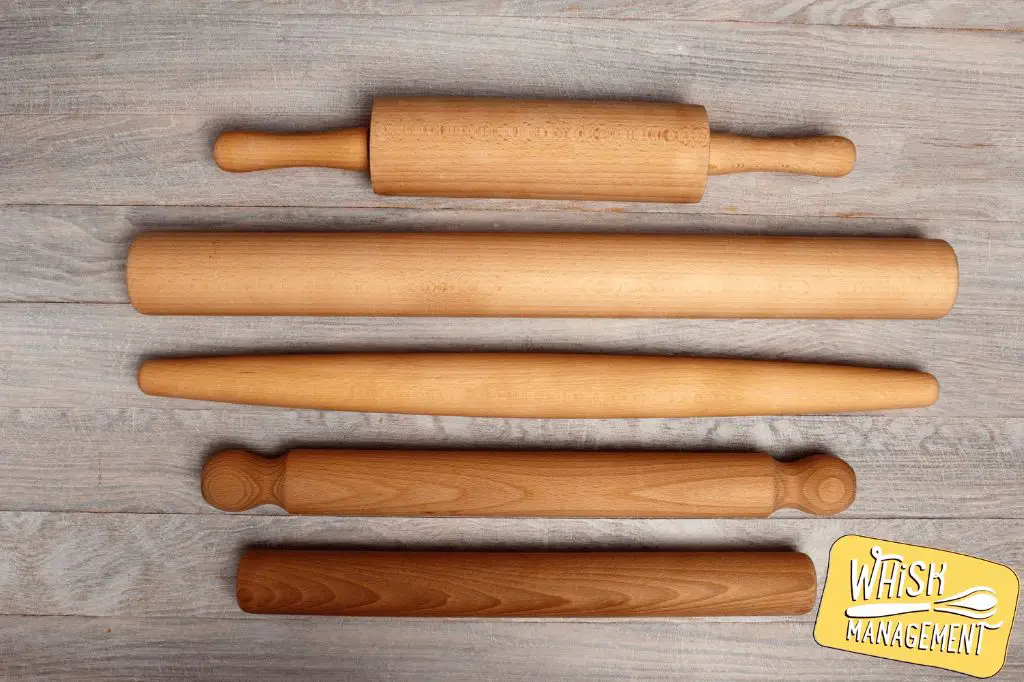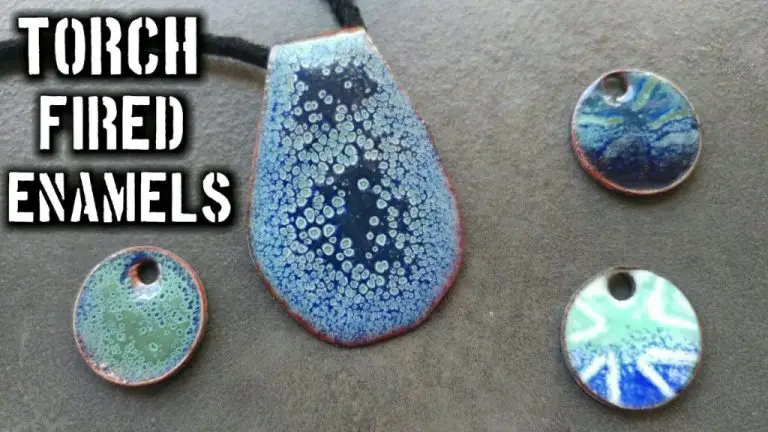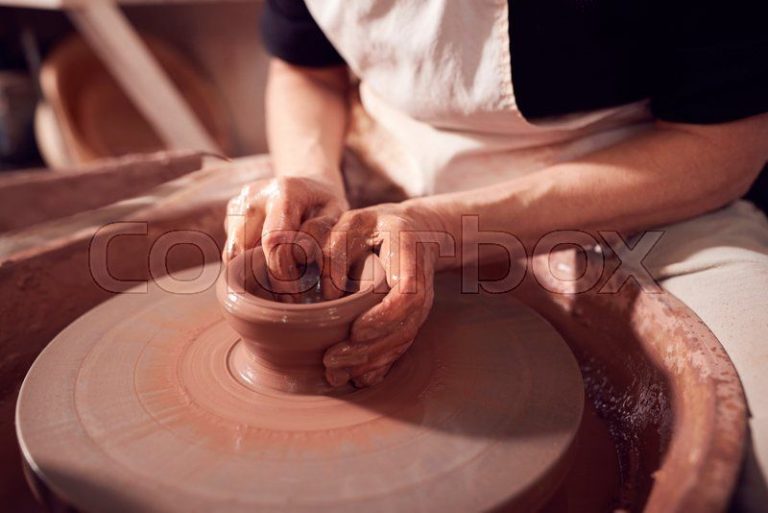What Wood Is Safe For Rolling Pins?
Rolling pins are an essential baking tool used to roll and flatten dough. Choosing the right wood is crucial for both safety and functionality when selecting a rolling pin. The wood needs to be hard enough to withstand pressure and resist absorbing ingredients like oils and moisture from dough. Yet, it also must be gentle enough to not damage delicate doughs.
The main factors that determine if a wood is safe for rolling pins are hardness, durability, and finish. Harder woods like maple and beech hold up well to heavy rolling pressure without denting or cracking. Durable, closed-grain woods don’t easily absorb liquids, which can cause swelling, splintering and bacterial growth over time. The right protective finish seals the pores of the wood. Food-safe oils help condition the wood to prevent drying and small surface cracks.
In this article, we’ll explore some of the top woods used for rolling pins including maple, beech, cherry, walnut and various exotic woods. We’ll also look at proper care and maintenance.
Food Safety
Wooden rolling pins can harbor bacteria if not properly cleaned and maintained, posing a risk of foodborne illness. When dough gets stuck in the crevices of the rolling pin, bacteria can multiply rapidly if left unchecked. Salmonella, E. coli, and Listeria are some of the most common foodborne pathogens associated with contaminated baking tools and surfaces according to the FDA (LearningandYearning). In addition to bacteria, mold growth can occur in damp rolling pins that aren’t fully dried after washing. Some natural wood finishes may also leach into dough during extended contact, especially if the finish contains toxic ingredients.
To mitigate these risks, it’s important to choose a dense, nonporous wood that can be thoroughly scrubbed and sanitize like maple or beech. Allowing the rolling pin to air dry completely before storage and reapplying food-safe oil periodically will help protect the wood. Avoid antique rolling pins, as old finishes may contain lead or other hazardous substances according to testing by Tamara Rubin (Rubin). With proper care and maintenance, wooden rolling pins can be a safe, effective kitchen tool.
Hardness
The hardness of the wood used for a rolling pin affects both its durability and rolling ability. The Janka hardness scale is commonly used to measure the hardness of wood. On this scale, harder woods have higher ratings. In general, harder woods can withstand the pressure applied during rolling without denting or compressing. However, extremely hard woods may be too unforgiving on dough. The ideal woods for rolling pins strike a balance between hardness for durability yet softness for proper rolling.
Maple is a popular choice with a Janka hardness rating of 1,450. Beech is slightly softer at 1,300, while cherry is softer still at 950. Exotic woods may range from very soft to extremely hard. Walnut has a hardness of 1,010, providing a good balance. ultimately, the feel of the wood and feedback during rolling is more important than just hardness ratings alone.
Maple
Maple is one of the most popular woods for rolling pins. It’s a hard, dense wood that is perfect for rolling dough. Maple is a closed-grain wood, so it is smooth and does not absorb liquids or odors (Maple Dowel Wood Rolling Pin, 19″). The hardness and tight grain of maple makes it very durable for rolling pins. Maple rolling pins will not splinter or crack easily.
Maple is also lightweight and easy to handle. The light color of maple is appealing to many bakers. Maple rolling pins are affordable and readily available. Major brands like J.K. Adams make maple rolling pins that are high quality (J.K. Adams FRP-1 Maple French Rolling Pin). The only downside is that the light color may show flour and dough residue, requiring more cleaning. But overall, maple is an excellent wood choice for rolling pins due to its hardness, safety, cost, availability and appearance.
Beech
Beech wood is a popular choice for rolling pins because of its hardness and smooth texture. Beech rates high on the Janka hardness scale at 1300 lbf, making it durable and resistant to dents (Amazon). The tight, straight grain and light color of beech create an attractive rolling pin that’s easy to clean.
Beech wood rolling pins are affordable and readily available. Many name-brand rolling pins like Martha Stewart’s line are made of beech (Gibson Homewares). The smooth surface doesn’t require much maintenance beyond oiling. The main drawback of beech is it can warp or crack over time if not properly cared for.
Cherry
Cherry wood is a popular choice for rolling pins because of its hardness, attractive reddish-brown color, and smooth texture. Cherry trees are part of the Prunus genus and are native to parts of Europe, western Asia, and North America.
Some key pros and cons of using cherry wood for a rolling pin include:
Pros:
- Hardness – Cherry has a Janka hardness rating of 950 lbf, making it a very hard, dense wood that can stand up to years of use without denting or becoming misshapen.
- Appearance – The reddish-brown color and smooth grain of cherry wood makes for an attractive rolling pin that looks great in any kitchen.
- Availability – Cherry wood is relatively easy to source and find available for rolling pins.
- Safety – Cherry wood is not known to commonly cause any allergic reactions and is generally considered food-safe once sealed with a non-toxic finish.
Cons:
- Cost – Cherry wood tends to be more expensive than options like maple.
- Susceptibility to staining – Cherry can absorb oils and liquids, potentially leading to staining over time with heavy use.
Overall, cherry is an excellent choice for a durable, attractive wooden rolling pin that will provide years of use. Applying a mineral oil or beeswax finish can help protect and maintain a cherry rolling pin. As with any wood, it’s important to hand wash and thoroughly dry a cherry rolling pin to maximize its lifespan.
Walnut
Walnut is a popular choice for rolling pins because of its hardness, beautiful color, and natural oil content that helps protect the wood. Walnut has a Janka hardness rating of 1,010 lbf, making it a very durable wood that resists dents and scratches (1). The rich chocolate brown color and attractive grain patterning also makes walnut rolling pins quite beautiful. Walnut’s natural oil helps protect the wood from moisture and food acids (2).
On the downside, walnut can be moderately expensive compared to woods like maple. The dust from walnut may cause an allergic reaction in people with nut allergies, so care should be taken during sanding and finishing. Overall, walnut is considered a very safe, durable, and attractive wood species for rolling pins from both a functionality and aesthetics standpoint.
Sources:
(1) https://andrewpearcebowls.com/products/20-inch-french-rolling-pin
(2) https://wondrwood.com/products/black-walnut-rolling-pins
Exotic Woods
Some popular exotic woods like purpleheart are often used for rolling pins because of their beauty, hardness, and unique appearance. However there are some pros and cons to be aware of when using exotic woods:
Pros:

- Very hard and dense, which can stand up to repeated stress from rolling dough
- Interesting grain patterns and colors, like the deep purple of purpleheart
- Can make an attractive statement piece for your kitchen
Cons:
- Can be quite expensive compared to domestic hardwoods
- Texture can be very rough and splintery if not properly finished
- Some exotic woods contain natural oils/extractives that can stain dough or impart flavor
- Sustainability and ethical sourcing are concerns with some exotic woods
Overall exotic woods can make beautiful and functional rolling pins. However it’s best to research if a particular species could impact food safety before purchasing.
Finish & Maintenance
The type of finish used on a rolling pin can impact its safety and ease of care. According to the woodworking forum at Sawmill Creek, traditional finishes like mineral oil, beeswax, or a drying oil like walnut oil are good options for rolling pins. These natural finishes allow the wood to breathe, don’t contain potentially harmful chemicals, and are food-safe.
According to The Patriot Woodworker, rolling pins should have a rough, fuzzy surface of around 120 grit. A film finish like polyurethane or lacquer should be avoided, as it creates a slippery surface that won’t grip dough well. The fuzzier texture helps flour adhere to the rolling pin and prevents sticking.
Proper maintenance is also key for safety. Handwash rolling pins with mild soap and water after each use, and reapply food-safe oil periodically to keep the wood from drying out. Avoid soaking or putting rolling pins in the dishwasher, as excess water can damage the wood over time.
Conclusion
In summary, the ideal woods for rolling pins are hardwoods like maple, beech, cherry, and walnut. These woods are dense and durable, with a tight grain that resists bacteria. Softer woods like pine can splinter and harbor germs. Exotic woods like teak, rosewood, and ebony also make attractive rolling pins, but may be more expensive.
When selecting a rolling pin, opt for unfinished wood or food-safe finishes. Mineral oil is a good choice for sealing and protecting the wood without contaminating food. To care for a wooden rolling pin, hand wash and dry thoroughly after each use. Apply mineral oil periodically to maintain the finish. With proper selection and care, a wooden rolling pin can provide years of safe, sanitary use in the kitchen.





